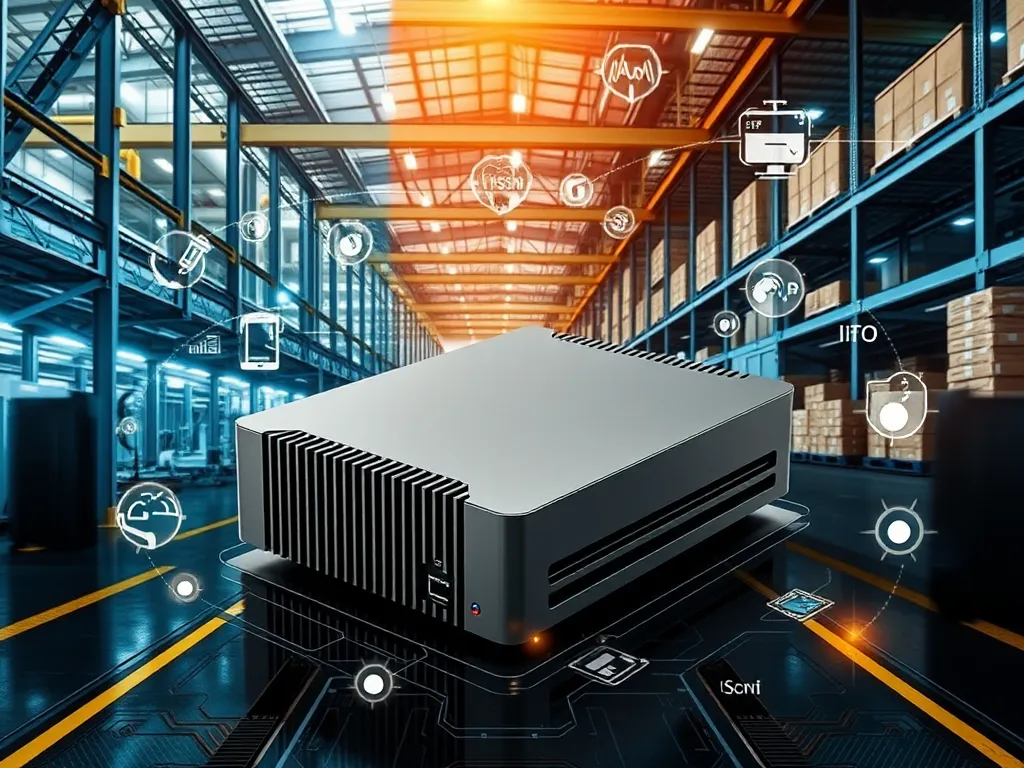Exploring Fanless Industrial PCs: Benefits and Uses

Understanding Fanless Industrial PCs: A Comprehensive Overview
Fanless Industrial PCs are specialized computing devices designed to operate without the use of traditional cooling fans. These PCs utilize advanced thermal management techniques to dissipate heat while maintaining optimal performance in various industrial environments. The absence of fans makes these systems inherently more reliable and suitable for applications where dust, noise, and maintenance are critical concerns.
For those seeking robust computing solutions, industrial pc Australia offers a wide range of durable and efficient devices.
One of the key attributes of Fanless Industrial PCs is their ability to offer enhanced durability, especially in challenging conditions. Designed to endure temperature fluctuations, moisture, and vibrations, these systems are often sealed and ruggedized, providing a level of protection that traditional PCs cannot match. This makes them ideal for industries such as manufacturing, automation, and transportation.
Fanless Industrial PCs are becoming increasingly popular due to their energy efficiency, which is particularly advantageous in industrial applications. By eliminating fans, these systems reduce energy consumption while ensuring that the components run cooler, subsequently leading to lower operating costs and a minimal environmental impact. As industries strive to implement greener technologies, Fanless Industrial PCs fit well within this evolving landscape.
Furthermore, Fanless Industrial PCs have a wide array of applications, powering a variety of systems in sectors from robotics and automation to smart manufacturing solutions. Their ability to work seamlessly within Internet of Things (IoT) and Industry 4.0 frameworks exemplifies their adaptability and applicability in modern industrial operations.
In conclusion, Fanless Industrial PCs represent a significant advancement in computing technology. By offering a reliable, efficient, and eco-friendly solution for industrial applications, they are set to play a crucial role in the future of technology in industrial environments.
The reliability of an industrial fanless pc ensures seamless operation without the need for noisy cooling systems.
Advantages of Fanless Industrial PCs
Energy efficiency is a paramount advantage of Fanless Industrial PCs. Since these devices do not rely on fans that require energy to operate, they consume less power overall. By minimizing energy expenditure, businesses can achieve substantial savings on their electricity bills, which is particularly beneficial in large-scale operations where numerous devices are in use.
Reduced noise levels are essential for sensitive operations. In environments such as laboratories or medical facilities, noise pollution can be detrimental. Fanless Industrial PCs operate silently, which not only enhances the working environment but also ensures that sensitive equipment is not adversely affected by operational noise, facilitating a more effective workflow.
Designed for maximum efficiency, a fanless industrial pc operates silently while delivering high performance in demanding environments.
Lower maintenance requirements are a significant benefit of Fanless Industrial PCs due to their lack of moving parts. Traditional PCs require regular maintenance, including dust cleaning and fan replacements. In contrast, Fanless systems have lower wear and tear, leading to reduced downtime and maintenance costs over time, making them a cost-effective solution in the long run.
Extended lifespan of components is another advantage of Fanless Industrial PCs. The cooler operational temperatures result in less thermal stress on components, significantly extending their lifespan. As a result, businesses can expect their devices to function effectively for longer periods without the need for frequent replacements.
Applications of Fanless Industrial PCs
One prominent application of Fanless Industrial PCs is in robotics and automation systems. These PCs can control robotic arms, conveyor belts, and other automated machinery without worrying about overheating, dust collection, and mechanical failure due to fan breakdowns, which is crucial in a manufacturing setup.
Fanless Industrial PCs are also deployed in harsh environmental conditions, such as factories with extreme temperatures, dust, and moisture. Their rugged design ensures that they can withstand these conditions, providing reliable performance where traditional PCs would likely fail.
Integration in smart factory setups is another key application for Fanless Industrial PCs. As industry automation increasingly incorporates IoT technology, these PCs can handle data from sensors and devices, analyze it, and facilitate communication within the smart ecosystem, enhancing operational efficiency.
Additionally, the utilization of Fanless Industrial PCs in transportation and logistics is essential. They can be used to monitor and control systems in vehicles, help manage supply chain processes, and ensure stability and reliability even in mobile applications subjected to harsh conditions.
Design and Features of Fanless Industrial PCs
A defining characteristic of Fanless Industrial PCs is their compact design, which is crucial for saving space in installations. Industrial environments often have limited space, and these compact units can fit into tighter locations without sacrificing performance or capabilities.
Durability and ruggedness are fundamental design features for Fanless Industrial PCs. Many models are built with military-grade materials to resist impacts, vibrations, and extreme environmental conditions, providing a reliable computing solution for any industrial application.
High thermal conductivity materials are utilized for the cooling solutions in Fanless Industrial PCs. These materials are engineered to effectively disperse heat away from critical components, ensuring that the systems remain operational even during peak performance periods without any active cooling fan.
Moreover, Fanless Industrial PCs often come with customizable options to cater to specific application needs. This flexibility allows businesses to select configurations that include various I/O ports, processing power, and storage capacities to meet their unique requirements.
Comparing Fanless Industrial PCs with Traditional PCs
When comparing Fanless Industrial PCs with traditional PCs, one notable difference is performance efficiency under load. Fanless PCs are designed to manage thermal heat passively, allowing them to maintain stability and performance levels even under demanding conditions, while traditional PCs may struggle due to overheating.
Longevity and reliability with Fanless Industrial PCs are typically superior due to the absence of moving parts, whereas traditional PCs face increased risk of mechanical failure. This difference emphasizes the reliability of Fanless solutions in mission-critical environments.
Thermal management differences also set these systems apart. Unlike traditional PCs that rely on fans, which can fail and lead to increased heat levels, Fanless Industrial PCs utilize innovative thermal designs, resulting in better thermal regulation and extended component life cycles.
A cost analysis over operational periods reveals that Fanless Industrial PCs can be more cost-effective than traditional PCs when considering maintenance and energy savings in industrial applications. The lower operational costs associated with Fanless designs can quickly offset any additional initial investments, making them a wise choice for many businesses.
Future Trends in Fanless Industrial PCs
Advancements in cooling technologies are paving the way for more efficient Fanless Industrial PCs. New materials and designs continue to evolve, offering improved thermal management solutions that drive performance enhancements in the absence of traditional fans.
Integration with IoT and Industry 4.0 is a significant trend. As industrial environments increasingly implement smart technologies, Fanless Industrial PCs will play a central role in data processing and communication, acting as the backbone for interconnected systems.
The emergence of AI applications in fanless designs suggests a promising future, where these devices could perform more complex computations while remaining energy-efficient and operating without noise, fueling innovations across various industries.
Lastly, there is a trend towards modular and scalable solutions in Fanless Industrial PCs. Businesses seek adaptable systems that can evolve with their needs, and modular designs will allow for easy upgrades and modifications over time, ensuring longevity and relevance in an ever-changing technological landscape.
